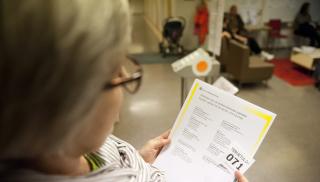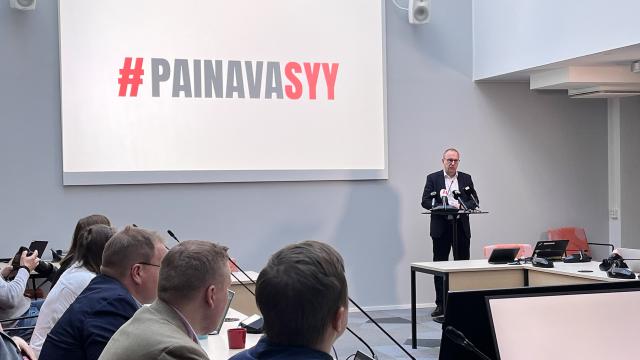SAK seeks to moderate unemployment benefit sanctions, with warnings used instead in some cases
Sanctions imposed under the SAK employment incentive scheme would be clearly less severe than those currently applied.
The initial jobseeker sanction could merely be a warning in some cases, with stronger measures gradually introduced later. Jobseekers could also avoid sanctions by correcting the relevant error, or by engaging in work, training or other activation services.
“The proposed scheme reflects our view of how jobseekers should be treated in a society based on trust. We are developing various ideas this year and we shall also submit proposals concerning ways for trade unions and unemployment funds to help their members find work,” explained SAK Development Project Manager Saana Siekkinen at a conference for leaders of SAK-affiliated trade unions at Helsinki Exhibition and Convention Centre.
“The present jobseeker activation scheme needs repealing, and sanctions must be simplified. They are currently quite unreasonable and Byzantine.”
Instead of intimidating claimants with sanctions, the SAK approach would encourage jobseekers by ensuring high standard services and offering incentives, for example to accept short-term employment.
“No two jobseekers are alike, and so they need individual and personal services. A telephone call is not enough. Jobseekers should have an immediate personal meeting when unemployment begins,” notes Pirjo Väänänen, the Head of Social Affairs at SAK.
“This initial meeting would enable the jobseeker to get together with a specialist and review such aspects as training and service needs and the jobseeker’s working capacity, with a view to incorporating these details in an individual employment and jobseeking plan.”
Jobseekers should also be free to enrol on courses of study for half a year, provided that they comply with the employment and jobseeking plan and remain willing to accept work.
“Poorly skilled jobseekers should enjoy priority access to better resourced labour market training, and we should also invest more in career guidance services,” Väänänen adds.
News
 The Central Organisation of Finnish Trade Unions
The Central Organisation of Finnish Trade Unions


